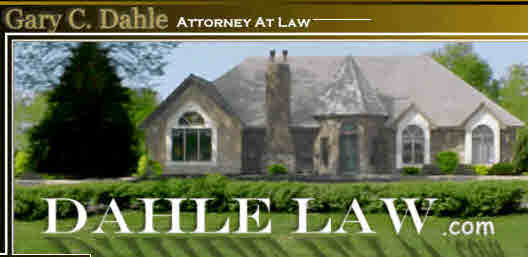Augsburg Seminary – 1871
In the spring of 1871, a special meeting of the Conference was held in Madison, Wisconsin, which resulted in the formation of a seven-man committee—of which Rev. Ole Paulson was a member—for the purpose of finding a permanent location for Augsburg Seminarium.[1]
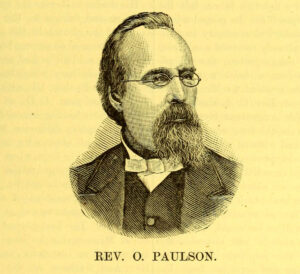
On returning to Minneapolis from the Madison meeting of the Conference, Rev. Ole Paulson discussed relocating Augsburg Seminarium to Minneapolis with the Hon. Charles E. Vanderburgh, a Minnesota District Court judge for the Fourth Judicial District—which included Minneapolis.[2]
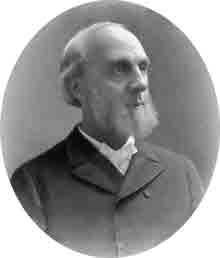
On April 13, 1871, Judge Vanderburgh held a meeting in his office attended by Rev. Paulson and other prominent citizens of the City of Minneapolis, for the purpose of determining whether Augsburg Seminarium could be relocated to Minneapolis.[3]
Six lots were pledged to be donated to the Minneapolis seminary at this meeting, and prior to June, 1871, Rev. Paulson had obtained additional pledges from various citizens of Minneapolis for about $4,000 in cash and building materials.[4]
None of the persons donating lots, and with two or three exceptions, none of the persons pledging cash or building materials, were members of the Conference, or of any church belonging thereto.[5]
In June of 1871, a meeting of the Conference was held at Rev. Ole Paulson’s Trinity Lutheran Church in Minneapolis, which resulted in a resolution to relocate Augsburg Seminarium to Minneapolis, due in part to greater offers of financial assistance received from the Minneapolis community.[6]
In 1873, Professor Weenaas and Rev. M. F. Gjertsen were sent by the Conference to Norway, in part on a recruiting mission to find a theological professor who would be willing to migrate to Minneapolis to join Professor Weenaas on the faculty of Augsburg Seminary.[7]
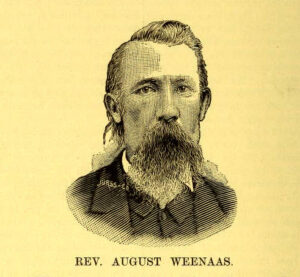
Sven Oftedal was not the first choice of the Conference for a professorship at Augsburg Seminary.
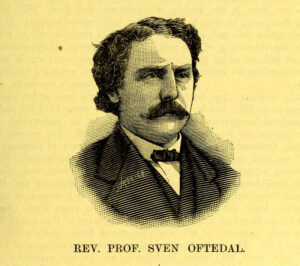
However, after the preferred candidate had refused an offer to relocate to Minneapolis, Sven Oftedal—then age 29—received a call to hold one of two chairs of theology at Augsburg Seminary, at the invitation of Professor Weenaas and Rev. M. Falk Gjertsen.[8]
Professor Oftedal arrived in Minneapolis on November 4, 1873, to commence his duties at Augsburg Seminary.[9]
In 1879, the Minneapolis Tribune referred to Sven Oftedal as
“in many respects . . . one of the most remarkable men in the country”,
and in 1893, as the
“smartest Norwegian in America.”[10]
Before accepting his call to a professorship at Augsburg Seminary, Sven Oftedal had conferred with two of his close friends—Georg Sverdrup and Sven R. Gunnerson—then residents of Norway, and graduates of the Divinity School at the University of Christiania, regarding new methods of training theological students in a divinity school.[11]
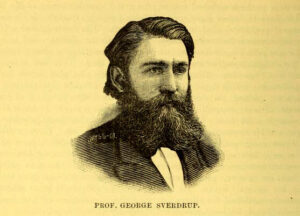
Both Georg Sverdrup and Sven R. Gunnerson urged Sven Oftedal to accept the call to Augsburg Seminary, and promised to join him in his work if he found the conditions favorable there to the realization of their new ideas.[12]
In 1874, after Sven Oftedal had recommended that both Georg Sverdrup and Sven R. Gunnerson be appointed as professors of theology at Augsburg Seminary, they accepted the offered professorships, and commenced their duties at the school in the autumn of that year.[13]
In 1893, the Minneapolis Tribune referred to Georg Sverdrup in the following manner:
In his work he is doggedness itself, and his plans are constructed on a grand scale—
they are the plans of one who knows he is born to be a leader of men.[14]
[1] Minnesota Supreme Court Records and Briefs, 72 Minn. 590, page 24, April 1898; Brief for Appellant – Appellant’s Statement of Facts. E. Clifford Nelson and Eugene L. Fevold, The Lutheran Church Among Norwegian-Americans: A History of the Evangelical Lutheran Church, 1:218 (Minneapolis, 1960).
[2] Minnesota Supreme Court Records and Briefs, 72 Minn. 590, page 24, April 1898; Brief for Appellant – Appellant’s Statement of Facts.
[3] Ibid. Chrislock, From Fjord to Freeway, page 7; citing Ole Paulson, Erindringer, 229-230, (Minneapolis, 1907).
[4] Minnesota Supreme Court Records and Briefs, 72 Minn. 590, page 24, April 1898; Brief for Appellant – Appellant’s Statement of Facts.
[5] Ibid.
[6] Chrislock, From Fjord to Freeway, page 7.
[7] Augsburg Seminary and the Lutheran Free Church, 1928, Affidavit of M.F. Gjertsen, Page 143, citing the 1874 Minutes of the Annual Meeting of the Conference, p. 20. Aff. M. F. Gjertsen March 2, 1897, ¶ 6, page 143. Chrislock, From Fjord to Freeway, page 9.
[8] Nelson and Fevold, Lutheran Church Among Norwegian-Americans, 1:219.
[9] Augsburg Seminary and the Lutheran Free Church, 1928, Affidavit of Sven Oftedal, Paragraph 2. Chrislock, From Fjord to Freeway, page 10, identifying in footnote 37 that the letter of call inviting Oftedal to join the Augsburg Seminary faculty is in the Oftedal Papers, Augsburg College Archives. See A. Weenaas and M. Falk Gjertsen to Oftedal, August 29, 1873.
[10] Minneapolis Tribune, September 20, 1879, page 2; June 8, 1893, page 8.
[11] Augsburg Seminary and the Lutheran Free Church, 1928, Affidavit of Sven Oftedal, Paragraph 16. Minneapolis Tribune, August 29, 1874, page 4.
[12] Augsburg Seminary and the Lutheran Free Church, 1928, Affidavit of Sven Oftedal, Paragraph 17.
[13] Ibid, at 16. Chrislock, From Fjord to Freeway, page 11, citing Andreas Helland, Georg Sverdrup, The Man and His Message, 50 (Minneapolis, 1947). Augsburg Seminary and the Lutheran Free Church, 1928, Affidavit of Sven Oftedal, Paragraph 17. Nelson and Fevold, Lutheran Church Among Norwegian-Americans, 1:219.
[14] Minneapolis Tribune, June 8, 1893, page 8.
Copyright to the text 2019, Gary C. Dahle. All rights reserved.
